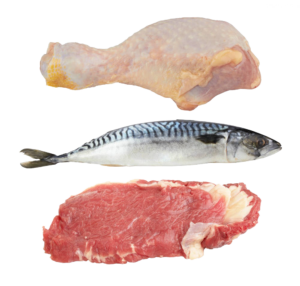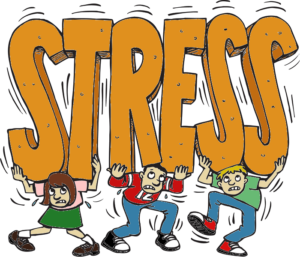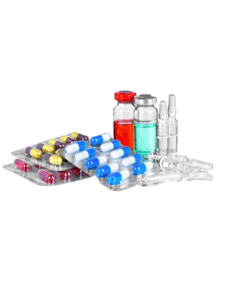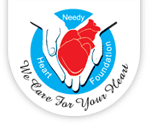1. Plant It on Your Plate


Plant-based foods may help you rein in high cholesterol.
Although a diet that is low in fat and saturated fat may help lower both total and LDL cholesterol, a new study suggests you could do more. Eating a variety of veggies, whole grains, and legumes appears to make the usual low-fat, cholesterol-control diet even more effective.
Reducing your total cholesterol to 160 mg/dL or lower can make your real age as much as 1 year younger.
A low-fat diet is a good first step toward lowering high levels of total and LDL cholesterol. In a recent study, researchers placed 120 men and women between 30 and 65 years of age with LDL cholesterol levels of 130 to 190 mg/dL on either a traditional low-fat diet or one that included plant-based foods such as vegetables, whole grains, and legumes for 4 weeks. Participants in both groups experienced drops in LDL and total cholesterol, but those on the low-fat, plant-based diet experienced greater reductions. Plant sterol compounds in the plant-based foods may be responsible for the effect. Regular, moderately intense exercise can help lower cholesterol further. Sneak more vegetables and legumes into your diet by stuffing heaps of leafy green lettuce and tomato into sandwiches, adding frozen broccoli and white beans to marinara sauce, topping salads with garbanzo beans, adding frozen vegetables to pizzas and soups, and keeping chopped vegetables on hand at all times for snacking.
Gardner, C. D., Coulston, A., Chatterjee, L., Rigby, A., Spiller, G., Farquhar, J. W., Annals of Internal Medicine 2005 May 3;142(9):725-733.
2. Sweet on Antioxidants


Reach for a certain sweet dried fruit for some extra antioxidants.
Dried figs are high in polyphenols, powerful antioxidants that help keep your heart and blood vessels healthy. Eating just 5 or 6 dried figs per day helps you meet your daily fiber and fruit requirements while satisfying your sweet tooth naturally.
Getting the right amount of antioxidants through diet or supplements can make your RealAge 6 years younger.
Figs are rich in polyphenol antioxidants, which can inhibit LDL oxidation, an initial step in forming artery-clogging plaques. In a recent study, researchers gave fasting participants 40 grams of figs (about one-quarter cup) with or without a sugar-sweetened soda. Researchers discovered that consuming figs raised participants’ blood levels of antioxidants for four hours after eating the fruit. Moreover, antioxidants in the figs counteracted the oxidative stress produced by the sugar-laden soft drinks. Figs contain fiber, B complex vitamins, magnesium, and other nutrients. Add chopped figs to sweet potato and squash dishes, oatmeal, and green salads for a sweet surprise.
References: Dried fruits: excellent in vitro and in vivo antioxidants. Vinson, J. A., Zubik, L., Bose, P., Samman, N., Proch, J., Journal of the American College of Nutrition 2005 Feb;24(1):44-50.
3. A Little Bite Before Bed


If you have trouble drifting off, the right bedtime snack may help promote a more restful night’s sleep.
In a study, a tryptophan-enriched snack before bed helped study participants sleep better and promoted morning alertness. Foods that provide a dose of tryptophan include bananas, dairy, nuts, eggs, soybeans, tuna, and chicken. Keep the serving size small and have your snack about an hour before bed.
Getting 6 to 8 hours of sleep per night can make your RealAge as much as 3 years younger.
The amino acid tryptophan is a protein precursor of serotonin, a brain chemical that promotes relaxation and sleep. In a recent study, people with mild sleep complaints who consumed a tryptophan-enriched protein drink shortly before bedtime slept better and experienced increased morning alertness. Other food sources of tryptophan include milk, oatmeal, baked potatoes, chicken, turkey, brown rice, bananas, yogurt, sunflower seeds, and nuts such as almonds and peanuts. A carbohydrate-rich snack before bed also may promote sleepiness. If you have chronic sleep troubles, see your healthcare provider for diagnosis and treatment.
References: Evening intake of {alpha}-lactalbumin increases plasma tryptophan availability and improves morning alertness and brain measures of attention. Markus, C. R., Jonkman, L. M., Lammers, J. H., Deutz, N. E., Messer, M. H., Rigtering, N., The American Journal of Clinical Nutrition 2005 May;81(5):1026-1033.
4. Forget Stress

Don’t let stress hormones hamper your brain activity.
High levels of stress hormones muddle memory in people of all ages by impairing brain areas involved in cognitive processing, a recent study concludes. Keep your memory sharp by fighting stress with regular exercise, social interactions with supportive people, and deep-breathing exercises
Taking care of your emotional health and well-being can make your RealAge up to 16 years younger.
Glucocorticoids are steroid hormones your adrenal glands release in response to stress. Although these hormones help regulate metabolism, blood pressure, and cardiovascular function, they may depress immunity. Several studies also reveal that both long- and short-term exposure to elevated levels of these stress hormones impairs memory and cognitive processing in children and adults. Chronically high levels of stress hormones in older adults may also shrink the hippocampus, a brain area involved in emotion and memory, by up to 14 percent, research suggests.
References: Stress hormones and human memory function across the lifespan. Lupien, S. J., Fiocco, A., Wan, N., Maheu, F., Lord, C., Schramek, T., Tu, M. T., Psychoneuroendocrinology 2005 Apr;30(3):225-242.
5. An update on NSAIDS (Non-Steroidal Anti-Inflammatory Drugs)

Which medication offers you the safest, most effective pain relief?
Aspirin? Ibuprofen? A prescription pain reliever? The choices can be confusing. A recent government safety review of a class of pain relief medication known as non-steroidal anti-inflammatory drugs (NSAIDs) has many people wondering what the most appropriate pain relief options are for them
What You Need to Know About NSAIDs
All the medications within this class of pain relief medication — from prescription COX-2 inhibitors to over-the-counter aspirin — are associated with an increased risk of gastrointestinal (GI) bleeding or ulcers. COX-2s are believed to have the lowest risk to GI health, but they still carry some risk.
The newest safety concerns regarding NSAIDs relate to heart health. Early research suggests certain COX-2 NSAIDs may increase heart attack and stroke risk. Two brands increase risk enough — without providing any additional benefit over similar medications — that the U.S. Food and Drug Administration (FDA) has requested they be withdrawn from the market.
For other prescription and non-prescription NSAIDs, the FDA has deemed that their ultimate benefit to consumers outweighs potential risks, including risks to the heart. One exception is aspirin. Although it is a non-prescription NSAID and therefore carries some risk to GI health, its heart protection benefits are well established by research.
To determine which medication makes the most sense for you, you must work closely with your doctor. Ask him or her to balance your need for pain control with your cardiovascular and GI risks.
People at low risk of heart disease might safely take an FDA-approved COX-2 inhibitor if they monitor their blood pressure. And people with elevated risk of GI bleeding may be able to make using an NSAID safer by pairing it with a stomach-protecting prescription medication.
Ultimately, your pain medication decision is up to you, which makes it more important than ever to educate yourself about your choices. Here’s a breakdown of the most recent NSAID rulings by the FDA:
Non-prescription NSAIDs
Labels for all non-prescription NSAIDs, from Advil® to Motrin®, will soon emphasize potential risks and urge consumers not to take too much or take the medication for longer than recommended. Certain patients also will be warned to speak with their doctors before using.
Prescription NSAIDs
COX-2 specific inhibitors: Vioxx® and Bextra® have been withdrawn from the market due to safety concerns. Celebrex® will soon have a stronger warning label — called a boxed warning — to help educate consumers about potential health risks associated with this medication.
Other prescription NSAIDs: Products in this category — such as Napralen®, Lodine®, Voltaren®, and Actron® — also will have boxed warnings to emphasize safety risks associated with their use.
The Choice Is Yours
If you take any NSAID-class medications and are concerned about risks or side effects, speak with your healthcare provider. If you are currently taking Bextra or Vioxx, speak with your healthcare provider immediately about alternatives.
And whatever pain medication you choose, remember to continue monitoring your health; people may differ considerably in how they react to NSAID medications.

